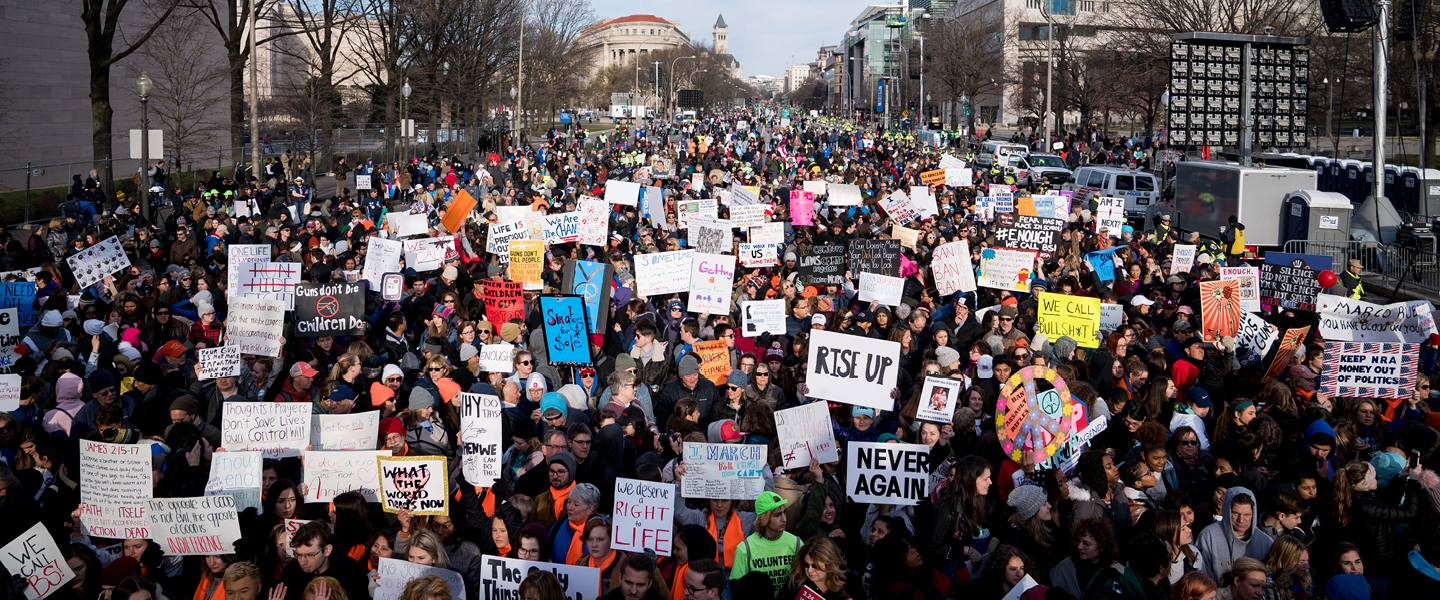Standing before vast crowds in the nation’s capital and in cities and towns across the country, the speakers—nearly all of them students—delivered an anguished and defiant message: They are done hiding from gun violence and will stop at nothing to get politicians to take action to prevent it.
The students seized the nation’s attention on Saturday with raised fists and tear-streaked faces, vowing that their grief about school shootings and their frustration with adults’ inaction would power a new generation of political activism. The marches were planned by student activists in response to the February 14 shooting at Marjory Stoneman Douglas High School, in Parkland, Florida, that killed 17 people.
“If they continue to ignore us, to only pretend to listen, then we will take action where it counts,” Delaney Tarr, a 17-year-old senior at Stoneman Douglas, told hundreds of thousands rallying in Washington. “We will take action every day in every way until they simply cannot ignore us anymore.”
For many of the young people, the Washington rally, called March for Our Lives, was their first act of protest and the beginning of a political awakening. But that awakening may be a rude one—lawmakers in Congress have largely disregarded their pleas for action in the five weeks since the Parkland shooting.
The crowd in Washington was estimated at several hundred thousand. Hundreds of thousands more rallied at about 800 coordinated marches around the country and abroad, where students, like those in the capital, made eloquent calls for gun control and pledged to use their newfound political power in the midterm elections this fall.
Aerial video captured seas of people—in front of Trump International Hotel in New York; in a central square in Tokyo; along the streets of Boston; at a rally in downtown Fort Worth, Texas; and crammed into a park less than a mile from Stoneman Douglas High.

